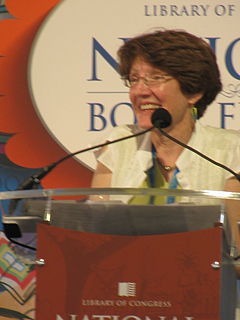A Quote by Mitch Albom
Fairness, does not govern life and death. If it did, no good person would ever die young. ~ The blue man
Related Quotes
...fairness," he said, "does not govern life and death. if it did, no good person would ever die." "Strangers," the Blue Man said, "are just family you have yet to come to know." "sacrifice is a part of life. it is supposed to be. it's not something to regret. it's something to aspire to. little sacrifices. big sacrifices. a mother works so her son can go to school. a daughter moves home to take care of her sick father. Sometimes when you sacrifice something precious, you're not really losing it. you're just passing it on to someone else.
We are left with nothing but death, the irreducible fact of our own mortality. Death after a long illness we can accept with resignation. Even accidental death we can ascribe to fate. But for a man to die of no apparent cause, for a man to die simply because he is a man, brings us so close to the invisible boundary between life and death that we no longer know which side we are on. Life becomes death, and it is as if this death has owned this life all along. Death without warning. Which is to say: life stops. And it can stop at any moment.
What if it is for life's sake that we must die? In truth we are not individuals; and it is because we think ourselves such that death seems unforgivable. We are temporary organs of the race, cells in the body of life; we die and drop away that life may remain young and strong. If we were to live forever, growth would be stifled, and youth would find no room on earth. Death, like style, is the removal of rubbish, the circumcision of the superfluous. In the midst of death life renews itself immortally.
I did get good enough to get on HBO's Young Comedians Special, but I certainly wasn't the person who got launched off of HBO's Young Comedians Special. That would be Ray Romano that year. I had some semi-intelligent jokes, but when people would see me, they would think, "Oh, that's a good writer." No one would ever have said, "Oh, that's a good performer."
For ever and ever, we say when we are young, or in our prayers. Twice, we say it. Old One, do we not? For ever and ever ... so that a thing may be for ever, a life or a love or a quest, and yet begin again, and be for ever just as before. And any ending that may seem to come is not truly an ending, but an illusion. For Time does not die, Time has neither beginning nor end, and so nothing can end or die that has once had a place in Time.
Meditation upon death does not teach one how to die; it does not make the departure more easy, but ease is not what I seek. Beloved boy, so willful and brooding, your sacrifice will have enriched not my life but my death. ... Centuries as yet unborn within the dark womb of time would pass by thousands over that tomb without restoring life to him, but likewise without adding to his death, and without changing the fact that he had been.
A movie is better than real life because in the movies only the bad guys die. Or you can pick the good movies where the bad guys die and only those. If you get tricked and a good person dies in the movie then you can rewrite it in your head so the good person lives and the part about death is superfluous.
Of this I am certain, that no one has ever died who was not destined to die some time. Now the end of life puts the longest life on a par with the shortest... And of what consequence is it what kind of death puts an end to life, since he who has died once is not forced to go through the same ordeal a second time? They, then, who are destined to die, need not be careful to inquire what death they are to die, but into what place death will usher them.
Everybody is afraid of death for the simple reason that we have not tasted of life yet. The man who knows what life is, is never afraid of death; he welcomes death. Whenever death comes he hugs death, he embraces death, he welcomes death, he receives death as a guest. To the man who has not known what life is, death is an enemy; and to the man who knows what life is, death is the ultimate crescendo of life.
What do you think has become of the young and old men? And what do you think has become of the women and children? They are alive and well somewhere, The smallest sprout shows there is really no death, And if ever there was it led forward life, and does not wait at the end to arrest it, And ceas'd the moment life appear'd. All goes onward and outward, nothing collapses, And to die is different from what any one supposed, and luckier.
Human stories are practically always about one thing, really, aren't they? Death. The inevitability of death. . . . . . (quoting an obituary) 'There is no such thing as a natural death. Nothing that ever happens to man is natural, since his presence calls the whole world into question. All men must die, but for every man his death is an accident, and even if he knows it he would sense to it an unjustifiable violation.' Well, you may agree with the words or not, but those are the key spring of The Lord Of The Rings
A man sentenced to death obtained a reprieve by assuring the king he would teach his majesty's horse to fly within the year - on the condition that if he didn't succeed, he would be put to death at the end of the year. "Within a year," the man explained later, "the king may die, or I may die, or the horse may die. Furthermore, in a year, who knows? Maybe the horse will learn to fly." My philosophy is like that man's. I take the long-range view.




































